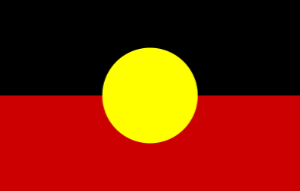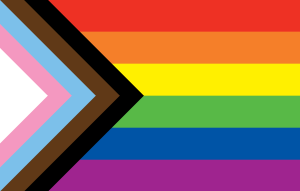The Dying Mind in the Living Human
For a very long time, my work and my writing has focused on death related loss, but, as I age and am confronted more frequently by people grieving other losses, I decided to give some of these losses more attention. Many people love partners, children, parents, siblings, and friends who have suffered traumatic brain injury. Others may have loved, raised and grieved children born with intellectual and/or emotional challenges. More and more families these days seem to be living with grief associated with dementia.
Way back in the late 1970’s, my husband Mal and I attended a conference titled The Dying Human. One of the most moving papers for us was The Dying Mind In The Living Human. The presenter was compassionate and inspiring. With images and words, she skillfully drew us into the story of her lifelong relationship with her intellectually gifted sister, ensuring that we symbolically travelled with her as the story progressed. We were all affected as we experienced dementia changing the landscape of their lives, most folk unembarrassed by their tears.
We later felt privileged when she took us with her on her usual weekly visit to meet her beloved sister, who by this stage of her illness was non-verbal and unable to recognize her. Until she began to sing. The transformation was amazing. They walked together arm in arm, harmoniously singing the songs of their childhood, the depth of their connection profoundly touching.
The experience left an indelible impression, but at that time I never dreamed that I too would have a similar experience with my own sister. I grieved with my sister when she first realized that changes were happening in her brain. We grieved together when she received the dreaded diagnosis of dementia and later as she described her own version of a prognosis that would make her unavailable to her family and to herself. She carried the book Still Alice with her everywhere and kept reading excerpts, despite the distress each reading stimulated.
I’ve learned how to live with my grief for the sister she used to be and am glad I can still enjoy moments with the very different sister she is continuing to become. Her husband and children are wonderful with her, entering her world to the best of their ability on every possible occasion, successfully hiding their grief until she turns away. In those moments, the intensity of their sadness is palpable and my heart aches for them. They long for the wife and mother they knew and loved before the onset of her diminishing ‘self’.
Who are we? What is our ‘self’
The dictionary defines self as ‘the distinct individuality or identity of a person or thing; one’s basic nature’.
Our ‘distinct individuality, identity, or basic nature’ enables us to relate to others and the world in which we live. When that ‘self’ is impaired from birth, or by illness, injury, mental illness, pain, degeneration, alcohol and other drugs, our ability to contribute to life and relationships can be seriously diminished. The people who love us grieve the loss of reciprocity.
It is reciprocity that ‘feeds’ the living circle of our relationships, that connects us heart to heart, mind to mind, and soul to soul. When that is lost, relationships become linear. Linear relationships aren’t ‘fed’ and can become exhausting, depleting our mental, emotional and spiritual reserves. Exhaustion makes us vulnerable and, at times, without compassionate understanding and support, we may begin to lose the sense of our own ‘self’. We may lose the tiny spark of hope that has kept us going, hope that change might occur, that miracles can happen.
While all the situations I have already mentioned, and probably some that I haven’t, contribute to the distress of linear communication. I think that death is the ultimate creator of a non-reciprocal relationship.
A sculpture by celebrated Norwegian artist Gustav Vigeland, of a standing child looking at the body of a dead mother, is a touching and graphic illustration of the pain associated with non-reciprocity. The death of hope and dreams. I am emotionally affected every time I study the image and have included it with this article so that you know what I mean.

Artist – Gustav Vigeland, Vigeland Museum, Oslo
Our ability to live with linear relationships depends on many things: our survival history and resilience, compassionate understanding and support, and our ability to establish new ‘goal posts’ – new hopes, and new dreams. We can learn how to create an internal dialogue with the child we dreamed of before birth, the person we knew before death, or before life events like brain injury, coma, extreme pain, alcoholism, drug dependence or dementia prevented external reciprocity. If we knew them well enough in life or in normal circumstances, we can probably guess how they would respond to our questions or to specific situations. They were, and will remain, a part of all we are.
Internal dialogues are rarely as satisfying as the tangible ones we long for, but they can help us to survive, and to remain fully connected to life and to the ‘self’ that we value. Grief remains part of that ‘self’ and continues like a subterranean stream returning to foreground in moments of vulnerability. With help, we won’t remain defined by grief or allow it to be foreground 24/7.
Most of us need support as we learn how to live in a world of linear communication. Help for many may be provided by loving relatives, friends and colleagues. For others, by support groups that are specific to our experience or from individual counselling. Some will be helped by a combination of both. Sometimes, the best help appears in the form of a book written for that purpose or perhaps from well written fiction that enables us to identify with characters who find ways of living with the pain of loss.
Whatever the nature of our chronic grief, being open to receiving help is a healthy starting point. Many of us might use a Google search for support groups or counsellors in our local area or ask friends and colleagues for recommendations. For bereaved folk, help is available. Please reach out to the team at the NCCG by phone 1300 654 556, email [email protected] or use their free email outreach serviceat [email protected]. They are specialists in caring for both adults and children of all ages three and older impacted by grief and bereavement.
An NCCG Blog
By Dianne McKissock OAM
Co-founder, National Centre for Childhood Grief
May 2024





